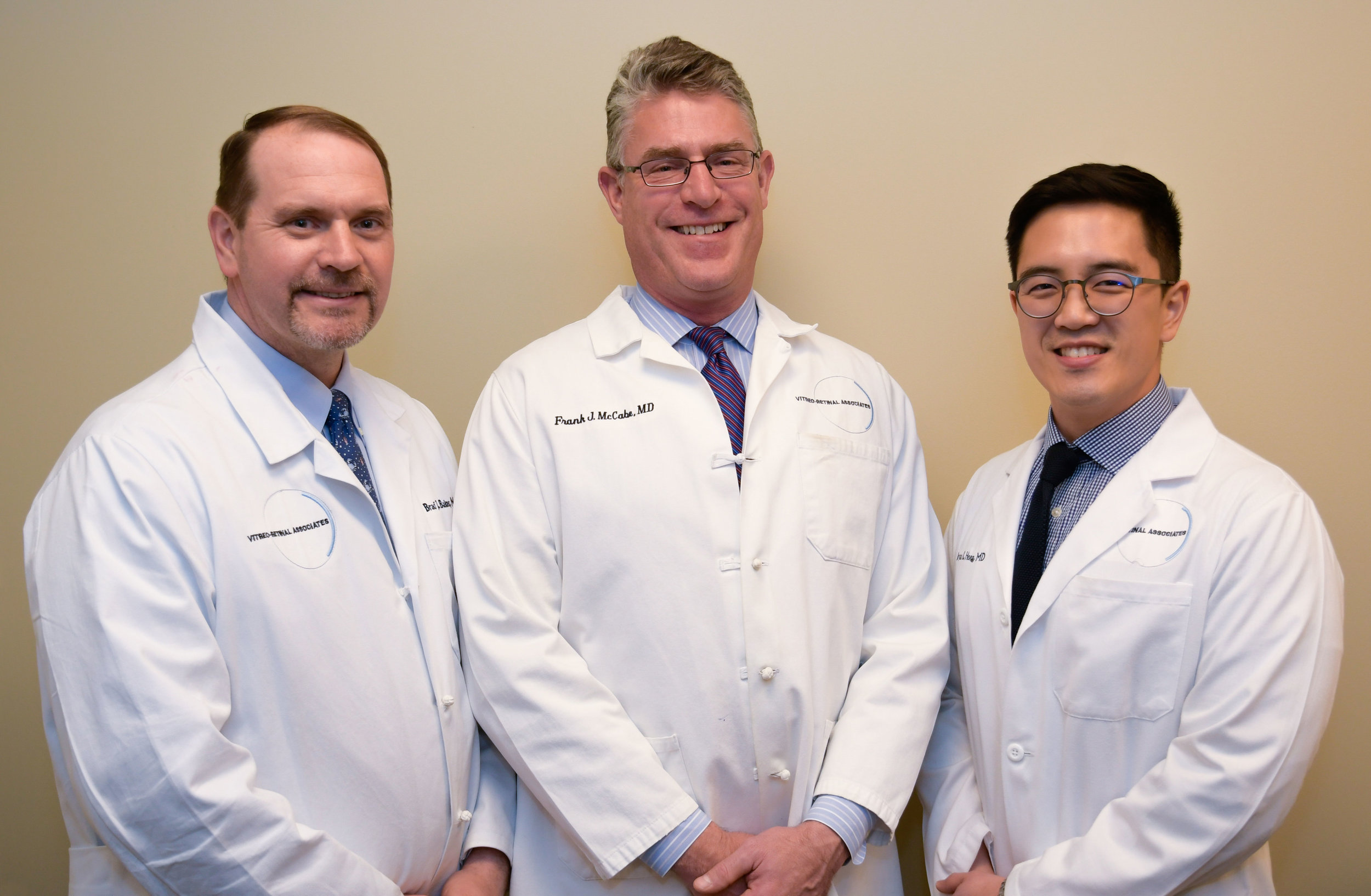What is a Retina Specialist?
Drs. Baker, McCabe, and Hong
Retina specialists train specifically in the subspecialty of ophthalmology known as vitreo-retinal medicine. They treat conditions involving the retina—the delicate nerve tissue that lines the back inside wall of the eye responsible for creating an image that is processed by the brain—and the vitreous—the jelly-like substance that fills the back of the eye.
There are a wide range of retinal conditions in both adults and children, including: age-related macular degeneration, diabetic retinopathy, retinal tears, retinoblastoma, retinal detachment, retinitis pigmentosa, and cancers of the eye. Retina specialists also treat patients who have experienced severe eye trauma, with the goal of addressing the trauma and repairing or preventing damage to the eye. Retina specialists may also be consulted in the case of a patient dealing with a hereditary disease of the eye. The retinal specialist is most often called upon when vision can no longer be improved after appropriate glasses have been prescribed and/or cataract surgery to determine the cause of the persistent decreased vision, or if there is any abnormality noted in the back of the eye on routine eye examination.
Retina specialists are highly trained. They must complete medical school and specialized training as an ophthalmologist, and then pursue additional vitreo-retinal training. The full breadth of training for a retina specialist includes:
Medical School: 4 years
Internship: 1 year
Ophthalmology Residency: 3 years
Retina-Vitreous Fellowship: 2 years

